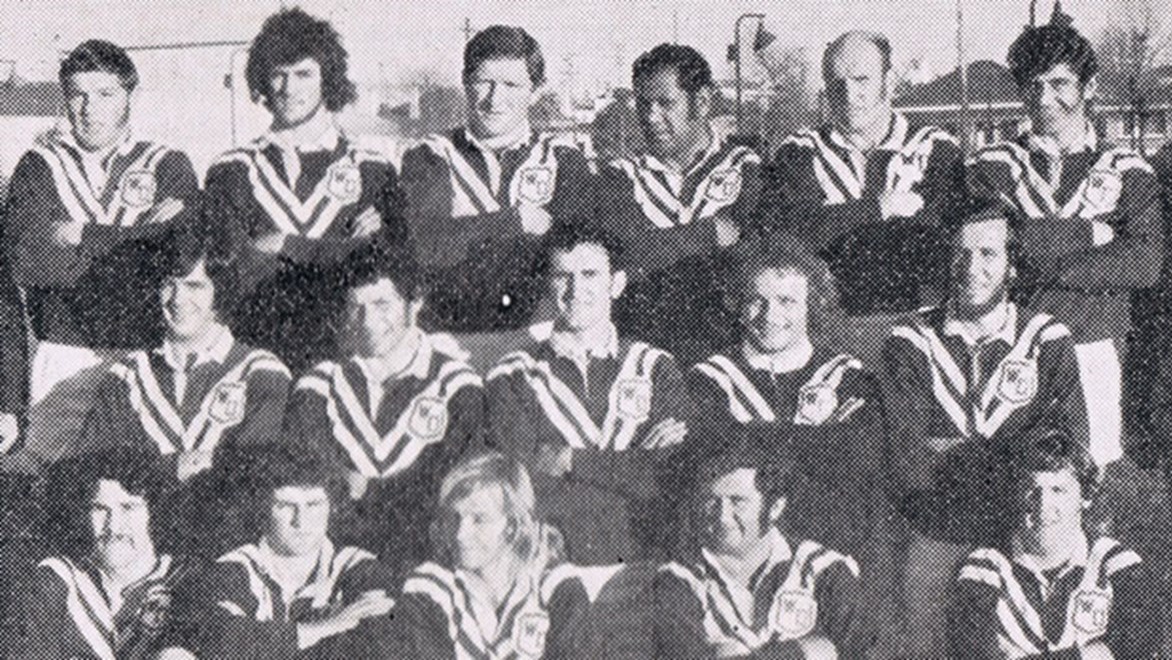

"You know, I reckon if I'd told them to run through a brick wall they would have done it. I told them that the only difference between them and their big-name opponents was the colour of the jumper."
It's a sporting cliche perhaps trotted out by any coach who has ever carried a clipboard but when Johnny King reflects on the impossible chain of events that led to a collection of regional part-time footballers winning the inaugural Amco Cup in 1974, never has the phrase had more meaning.
It ranks among the greatest Cinderella stories sport has ever seen anywhere in the world but rarely gets a mention outside the pubs dotted throughout the central west of New South Wales.
The doyen of rugby league authors, Ian Heads, has spoken with the 18 surviving members of that Western Division team of 1974 and countless other significant figures in the sparkling retelling of their triumph of 40 years ago in his new book, The Night The Music Died.
From the declining of the Queensland Rugby League and Newcastle Rugby League to take part that opened the door for Western Division to participate in the mid-week competition to the bloody battle at Wade Park in Orange against the visiting British to the celebrations back in the corridors of their hotel on the night of August 21, 1974, Heads weaves together elements almost as vast as the landscape of the 11 towns from which the team was plucked.
Appointed coach of the side in the wake of a humiliating defeat to Monaro in the Country Divisional Championships, King put together a squad he believed could stand up to the might of all 12 teams of the Sydney premiership, the other top seven divisional country sides and a team from Auckland.
There were mass changes at the selection table as King put local politics to the side to pick the squad he wanted, despite never having seen many of the players eventually chosen.
"The men chosen to be involved in the launch of Western Division's campaign were a mixed bag that included among others: a slaughterman; a sleeper cutter; a bush-loving rabbit-trapper who would go on to train greyhounds and horses and also play league for Australia; a farmer; a market-gardener; a copper who had once been Johnny Sattler's roommate at South Sydney; a hooker who had sat on the bench for Souths in the 1971 Grand Final against St George; an accomplished boxer; a machinist; a railway worker; a grain buyer and seller; and a bald-headed animal impersonator, sometime council worker and miner who would become a TV star," Heads explains.
They would come together to form a team that would topple an international-laden side from New Zealand, premiership runners-up Canterbury, two-time defending premiers Manly (on a penalty countback) and a gritty Penrith team featuring Tim Sheens and Mike Stephenson.
But first they had to meet.
Two nights before their first game against Auckland, players from Western Division flew into Sydney on three separate flights from Bathurst, Orange and Dubbo. The Bathurst and Orange contingent found themselves at the Cammeray watering hole, 'Bears' Den' at around 10pm and as it neared closing time, noticed another group of young men on the opposite side of the club.
Believing them to be their Kiwi opponents, the hardened bushies spoke of the brutal things they would do to them on the rugby league field in less than 48 hours time until Bathurst forward Ian 'Red' Toohey spotted what he thought was a recognisable face.
"Excuse me, are you Johnny King?" he asked.
"Yeah, I'm Johnny King."
"Well, you'd better come and meet these blokes over here," Toohey quipped. "They're in your team!"
"Hardly anyone knew one another," King recalls. "When I took over Western Division, I only knew the Dubbo and Wellington blokes. All the others were strangers to me."
What is captured in 346 pages is one of the most unheralded sporting triumphs in Australian history as well as – for the first time – a detailed account of the day Western Division and Great Britain played what has been described as one of the most ferocious matches of rugby league ever played.
"Only now have I come to know about and fully understand the dark and dangerous underbelly of this game at Orange, 40 years ago," says Heads, who sat sideline as scrums broke out into wild brawls and three players were eventually sent off.
Having lived in both Bathurst and Dubbo the deeds of this team are still the stuff of legend and for any rugby league fan in Australia, this is a story to be read and treasured.
The Night The Music Died by Ian Heads and published by Stoke Hill Press is on sale from Friday, August 1.

